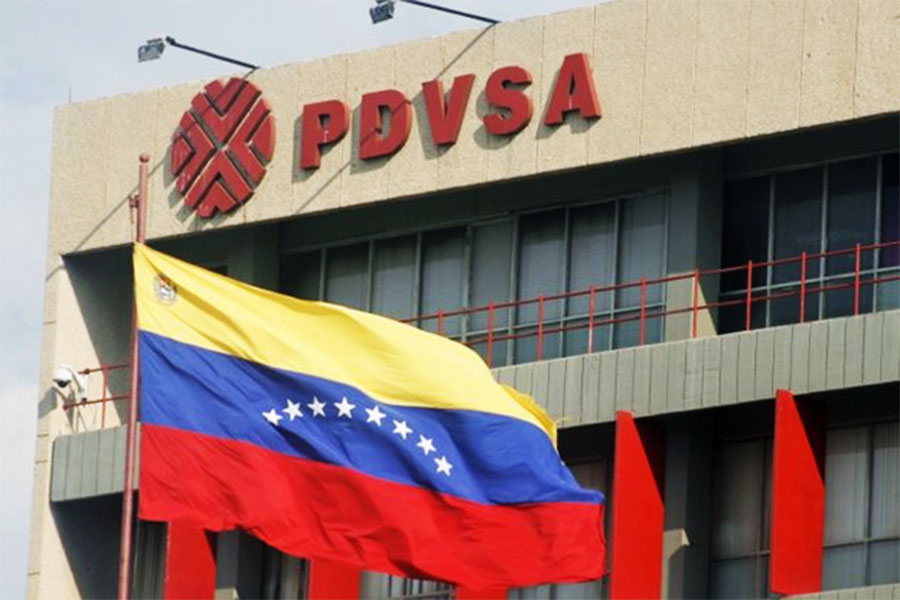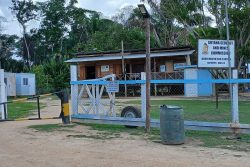CARACAS/HOUSTON, (Reuters) – Venezuela’s state-owned PDVSA is in talks with local and foreign oilfield firms to hire equipment and services that would allow it to revive depressed output, sources close to the meetings said, after the U.S. relaxed sanctions on the country.
The U.S. Treasury Department in October authorized for six months the production and export of Venezuelan crude, gas and fuel, the procurement of goods and services, new investments and payments to PDVSA with few limitations on business partners.
The general license authorizing those activities is subject to compliance with a key electoral pact between President Nicolas Maduro’s government and the opposition that outlines the path to a presidential election in 2024.
Washington has said it could reverse the measures if the agreement does not come to fruition.
Venezuela only has one active drilling rig left from more than 80 units that were operational in 2014, Baker Hughes’ BKR.O figures show, which experts say creates big obstacles to rapidly expanding production.
As risks of a non-renewal of the license increase amid a fray over the opposition’s presidential primary, PDVSA’s priority is to find oil service companies that can reactivate rigs stored in Venezuela or that are idle due to lack of parts, the sources said.
U.S. oil firm Chevron CVX.N will also require at least two drilling rigs of up to 1,500 horsepower next year for a U.S.-approved drilling campaign aimed at boosting its joint venture’s production to about 200,000 barrels per day (bpd).
The government shared plans to restart drilling after five years of inactivity even before the sanctions relaxation.
PDVSA wants to revive 27,966 wells – mostly located at Venezuela’s oldest production region in Zulia state – that could add 1.7 million barrels per day (bpd), according to a July presentation by oil minister and PDVSA CEO Pedro Tellechea.
However, the spectacular increase from this year’s output of 780,000 bpd could take up to a decade of hard work and sustained investment by PDVSA and partners, according to experts.
Among companies that have inactive equipment in Venezuela are firms SLB SLB.N, Nabors Industries NBR.N and Evertson International, two of the sources said.
SLB said last month that the company was working on a quick return to Venezuela’s oilfields, where it was once PDVSA’s biggest services partner. SLB did not immediately reply to a request for further comment. Nabors, Evertson and PDVSA did not reply to requests for comment.
PDVSA also is negotiating specialized oilfield equipment with companies in Turkey, whose President Tayyip Erdogan has met repeatedly with Maduro in recent years, another source said.
The sanctions easing is an opportunity to open up the oil industry, said the head of Venezuela’s Oil Chamber, Enrique Novoa, adding there have been conversations between PDVSA and members of the chamber to evaluate investments and projects.
Venezuelan officials have made proposals to small private oil contractors to operate some PDVSA oilfields to reverse depleted crude production, six sources familiar with the talks said.
Some companies that have approached PDVSA to reactivate business ties have been referred to Camimpeg, an oil and mining services firm owned by the Venezuelan military that has a relationship with PDVSA and often outsources to specialized companies, according to two of the sources.
Venezuela’s hydrocarbon law requires PDVSA and its joint ventures to operate all crude oilfields, but in recent years PDVSA has signed technical services agreements that delegate well intervention to specialized companies.
Prior to the easing of sanctions, PDVSA planned to recover wells and rigs to increase output, especially in the south of Anzoategui state in eastern Venezuela.
Local firm Operadora Indioil, which specializes in drill recovery and reconstruction and has presence in Anzoategui, is among firms tapped by PDVSA for rescuing damaged and looted equipment, one of the sources said.
Indioil and Camimpeg did not respond to requests for comment.









